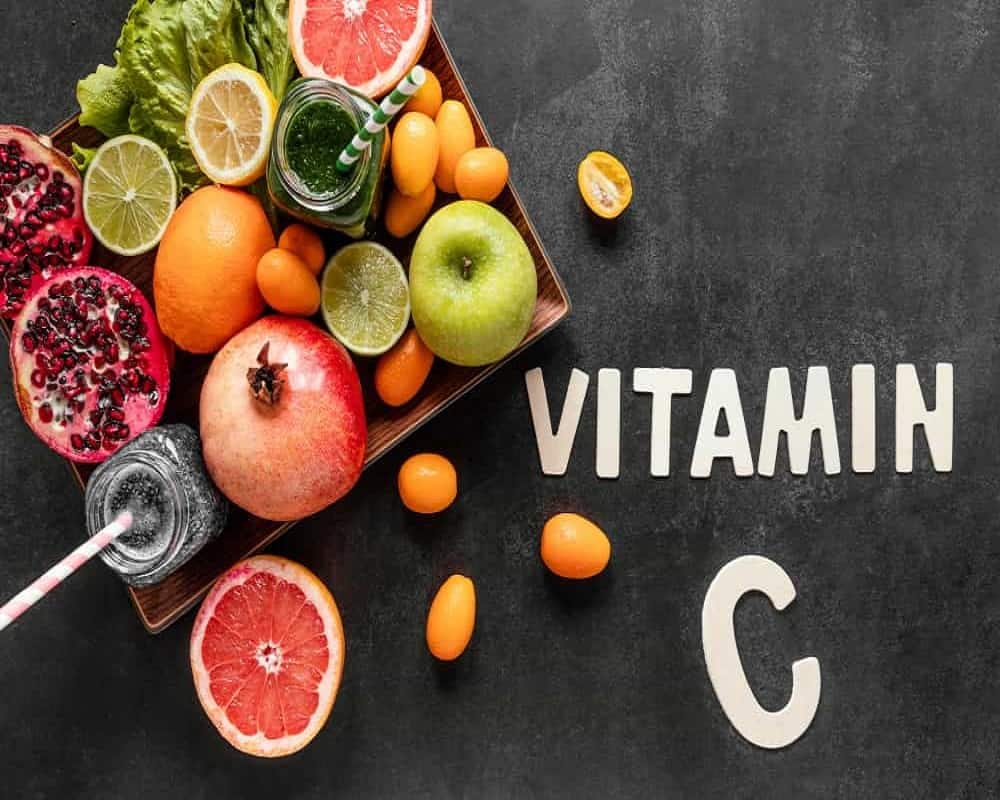Today, having a strong immune system is crucial. It protects the body from infections and diseases. One effective way to enhance immunity is through proper nutrition, especially vitamins. This article covers 5 vitamins that are best for boosting your immunity, helping you stay healthy year-round.
1. Vitamin C: The Immunity Powerhouse
Vitamin C is essential for immune health. It acts as a powerful antioxidant, protecting cells from damage caused by free radicals. It also aids in the production of white blood cells, crucial for fighting infections.
Vitamin C Sources:
- Citrus fruits (oranges, lemons, grapefruits)
- Berries (strawberries, blueberries, raspberries)
- Bell peppers
- Broccoli and Brussels sprouts
- Kiwi
Including vitamin C-rich foods in your diet can strengthen your immune system. If you’re not getting enough from food, consider supplements, but whole food sources are preferred.
2. Vitamin D: The Sunshine Vitamin: One of the 5 Vitamins for Boosting Immunity
Vitamin D is vital for a properly functioning immune system. It modulates immune responses and decreases the risk of infections, particularly respiratory ones. It also helps produce antimicrobial peptides that fight bacteria and viruses.
Vitamin D Sources:
- Sunlight (your body produces vitamin D when exposed to sunlight)
- Fatty fish (salmon, mackerel, sardines)
- Fortified foods (milk, orange juice, cereals)
- Egg yolks
- Mushrooms (especially UV-exposed ones)
Because vitamin D is mainly generated from sunlight, those with limited sun exposure may struggle with levels. If necessary, consider supplements after consulting a healthcare provider.
3. Vitamin A: The Immune System Protector
Vitamin A is crucial for the health of skin and mucous membranes, the body’s first line of defense against invaders. It also supports the production and function of white blood cells, especially T-cells, which fight infections.
Vitamin A Sources:
- Carrots
- Sweet potatoes
- Spinach and kale
- Red bell peppers
- Liver and fortified dairy products
As a fat-soluble vitamin, vitamin A is best absorbed with healthy fats found in avocados or nuts. Including vitamin A-rich foods in your diet will bolster your immune system and overall health.
4. Vitamin E: The Immune Enhancer
Vitamin E is a strong antioxidant that combats oxidative stress and supports the immune system in fighting pathogens. It aids in immune cell production, enabling effective responses to infections. Additionally, it helps reduce inflammation, vital for a healthy immune system.
Vitamin E Sources:
- Nuts and seeds (almonds, sunflower seeds)
- Vegetable oils (sunflower oil, wheat germ oil)
- Spinach and Swiss cheese
- Avocados
- Fortified cereals
Vitamin E is most effective when taken with other nutrients, so consuming a variety of vitamin E-rich foods will enhance your immune support.
5. Vitamin B6: The Immune Booster
Vitamin B6, or pyridoxine, plays a crucial role in supporting immune system reactions. It aids in hemoglobin production for oxygen transport in the blood and boosts lymphocyte formation, which are essential white blood cells that help combat infections. Additionally, B6 helps produce serotonin, a neurotransmitter that improves mood and reduces stress, positively impacting immune health.
Vitamin B6 Sources:
- Poultry (chicken, turkey)
- Fish (salmon, tuna)
- Potatoes
- Bananas
- Chickpeas and lentils
Being water-soluble, Vitamin B6 needs regular consumption since it is not stored long-term in the body. A diverse diet rich in B6 will support your immune system.
The Bottom Line: A Holistic Approach to Immunity
While these 5 vitamins that are best for boosting your immunity are excellent for enhancing immunity, overall health relies on more than just vitamins. A comprehensive strategy including a balanced diet, exercise, hydration, quality sleep, and stress management is vital for a robust immune system.
Incorporating these vitamins daily equips your body to ward off infections and maintain good health. If you’re uncertain about your vitamin intake, consult a healthcare professional for guidance on supplements and dietary changes.
